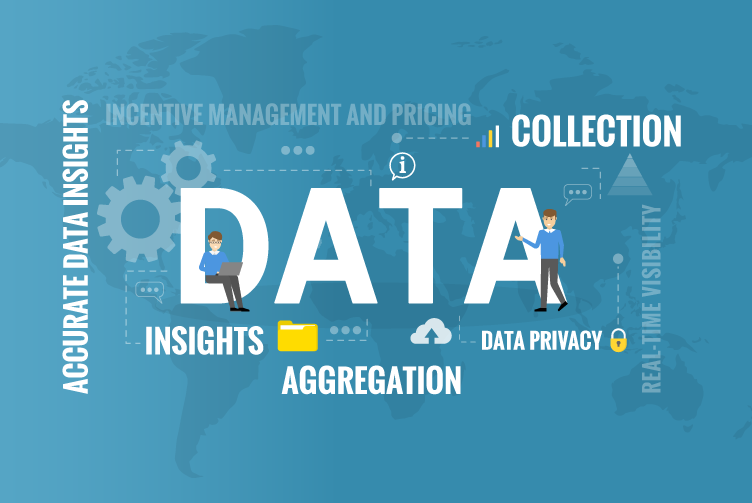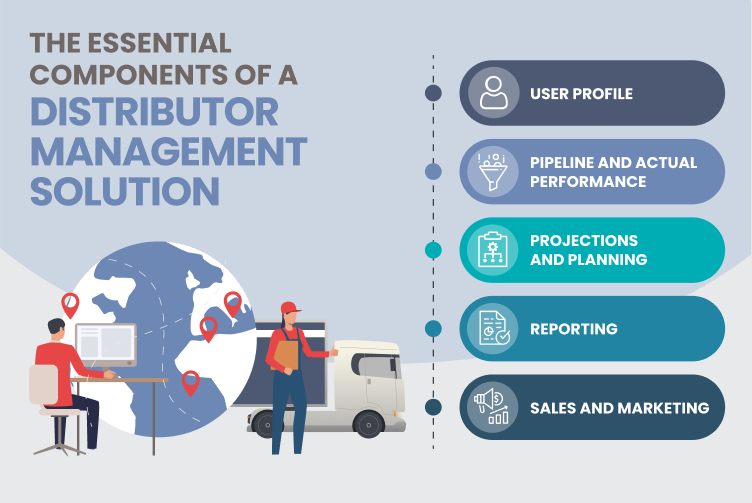For modern consumer product companies, effective distribution channels offer essential business value. The channel is a pathway to market their products or services to the end consumer through a dramatic expansion of the company’s reach. As in all other sectors, channel sales are evolving due to changes in customer behavior along with a competitive market environment.
In this scenario, consumer brands are looking at digital technologies to help them push for data-driven business transformation and automation. They want the intelligence that creates competitive price strategies and meaningful operational visibility. Further, as distribution channels extend beyond national borders, these companies need to unify their visibility across geographical regions and enable better distributor management.
Among their major challenges, consumer brands need to collect and aggregate data from all their international retailers and distributors to extract valuable insights about business performance and customer preferences. They also need to empower their distributors to sell more, engage with customers better, and be more aligned with the brand.
How do they deal with the many challenges across distribution channels and maximize their business insights? Let us look.
Data-related challenges in international distribution channels
Be it sales or inventory data, every consumer product company needs well-organized data to improve its efficiency and productivity. Low-quality data can hinder good decision-making and can negatively impact business outcomes. While accurate data is available at various points in the distribution channel, the challenge lies in accumulating and integrating this data from the distributor systems and efficiently analyzing them for measuring sales performances and SKUs.
Which are the major data-related challenges in managing distribution channels? Here are the main areas:
- Data collection
For effective distributor management, consumer companies need to efficiently collect actionable data about products moving from the manufacturing facility to the warehouse system, and then onwards to the customer through the distribution channel. For high-quality data, the data collection process is crucial along with proper cleaning and customization. The main challenge exists in collecting data from different distributor systems (with their varied data formats, different degrees of digital maturity, and other localized issues), and integrating them into a powerful centralized distributor management system.
- Data aggregation
Which product SKU is making good sales in which region? What are end consumers discussing and asking from the brand in their interactions with the field salespeople? Which sales channels are most efficient in a particular country or for a specific product line?
These are typical questions faced by any consumer brand looking to aggregate all information from their distributor network. Effectively, data aggregation is the means for consumer brands to integrate and extract insights from large volumes of data from their retail or distribution partners.
- Data insights
The major challenge for consumer companies is that most distributor (or dealer) management systems do not provide the level of data insights that help them improve business processes at a central location. This is a major issue because the data insights have to be available to the decision-makers and brand stakeholders at HQ to drive company-wide responses and policies. To be more effective, sales teams and channel managers working with distribution partners need to unify and align their efforts to extract useful data insights.
Consumer brands need a distribution management system (or DMS) that can generate real-time business reports and intelligence that provide its stakeholders with access to updated data across various business categories, products, and geographical regions.
Besides these data-related challenges, many distribution management systems are complex and do not leverage the latest technologies to gain real-time insights. Along with a lack of organized data, most DMS provide limited business visibility for both business executives and channel partners that ultimately hinders business decisions.
Some of the common limitations of a traditional DMS include:
- Manual tracking of business inventory is both inefficient and time-consuming.
- Intentional manipulation of cost-related estimates and customer transactions can adversely impact the acquisition of correct insights.
- Over-dependence on business reports for making business decisions, in place of enabling real-time access to updated information across business functions.
- Failure to address bottlenecks in business operations across stages including manufacturing, packaging, transportation, billing, and warehousing.
How can an efficient distributor management solution overcome these challenges? Let us discuss that next.
How can the right distributor solution help consumer companies?
Effectively, the right distributor solution can streamline the distribution workflow and enables consumer companies to gain real-time access to business data from their distributors. Here are some of the capabilities that a distribution management solution provides to businesses:
1. Real-time visibility
An efficient DMS provides real-time visibility into the distributor’s operations and can easily integrate with any tool being used at their end. For instance, it can align with mobile apps being used by field operators and be used to track their daily activities and overall performance. At the same time, distributors do not need to install multiple applications for different consumer brands and can unify their business view with a centralized DMS.
2. Accurate data insights
Often, consumer channel sales are impacted due to a lack of real-time data regarding orders, inventory, and product returns. Using efficient order management and stock-out scenarios, DMS tools can now collect and integrate real-time data from the entire distributor network. Additional customer insights can be derived to suggest the right product offering to potential customers.
3. Incentive management and pricing
Effective DMS solutions are aligned with the right promotions, pricing strategy, and incentives for each distributor channel. Thanks to the availability of real-time performance data (related to product lines and distributors), companies can now create customized promotions and offers that can incentivize improved sales results from each distribution partner.
4. Data privacy
Multi-brand distributors do have concerns about sharing their confidential data (for example, customer details) with the consumer brand. There has also been driven by increasing industry regulations and growing cyberattacks in the consumer sector. With smaller companies also leveraging their data capabilities, the right DMS solution must address data privacy concerns and only extract insights that are useful to the consumer brand.
In addition to these capabilities, distributor solutions for international sales can include functionalities like multi-language support, geographical tagging, gamification-based training for sales executives, and cloud-based ERP for gaining insights at the country level.
Conclusion
In an evolving consumer industry segment, companies operating in different countries face multiple challenges related to aggregating and using business data from their widespread distributor and partner network. An efficient data-driven distributor solution is the key to deriving valuable insights from the massive data volumes being generated by both distributors and retailers.
At Amshuhu, we have developed the successful iSteer distributor solution that has enabled our business clients to increase their channel sales through efficient inventory management and cost-efficiency. Interested in learning how we can help? Get in touch with us for a free product demo.




